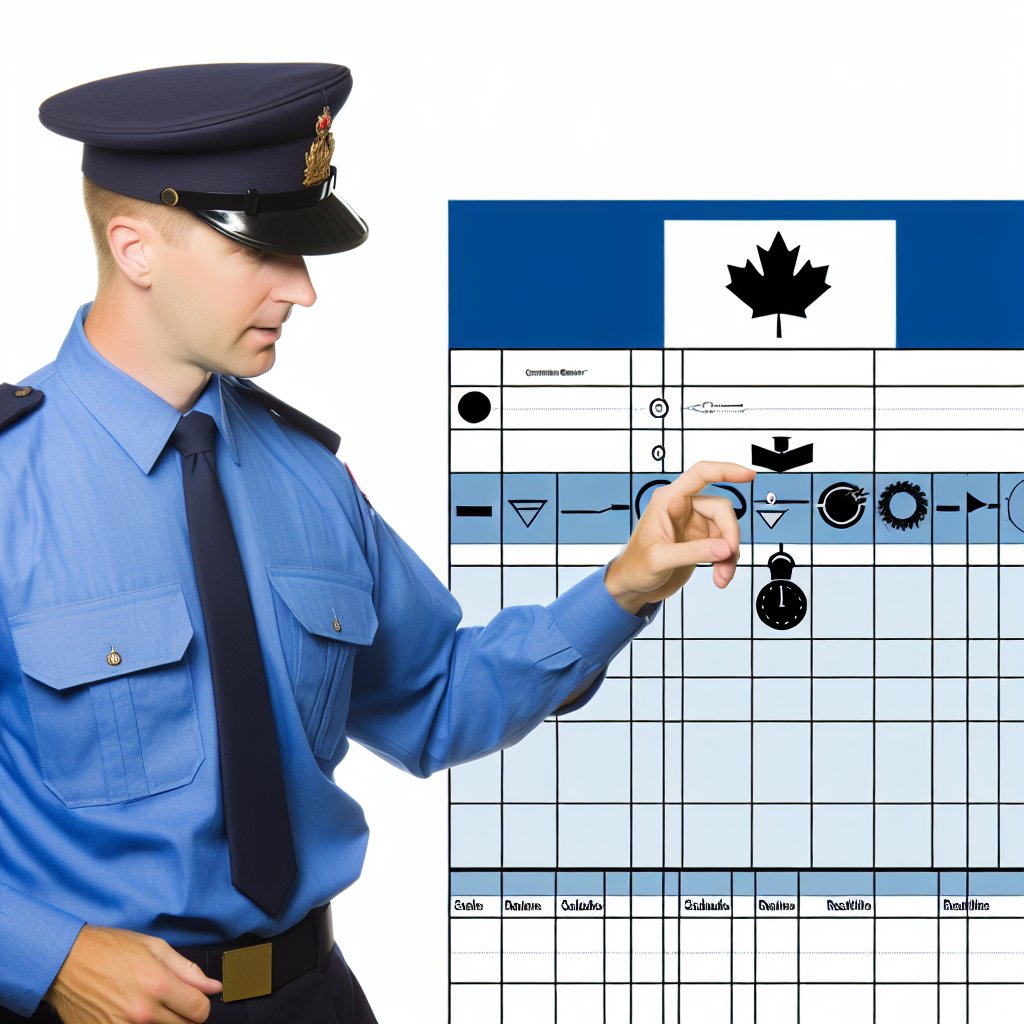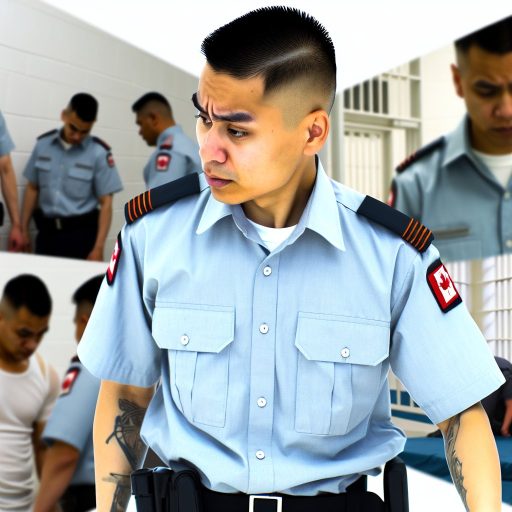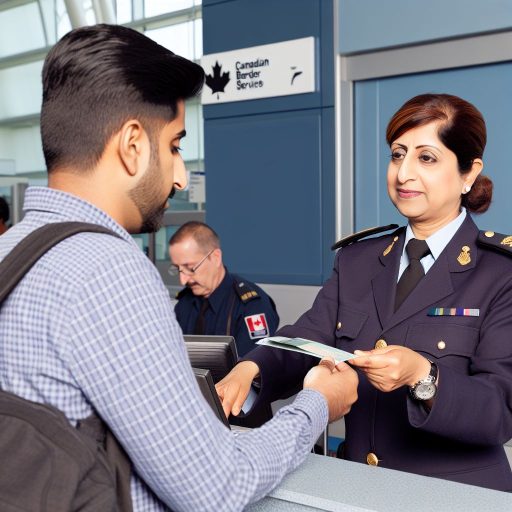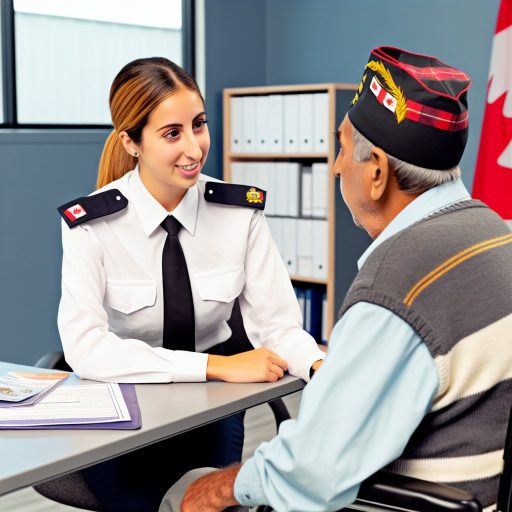Introduction to the Role of a Correctional Officer
A correctional officer plays a vital role in the criminal justice system.
They oversee individuals who have been arrested or convicted of criminal offenses.
Moreover, correctional officers ensure safety and security within correctional facilities.
Their primary responsibility is to maintain order and discipline among inmates.
In addition, they prevent and respond to emergencies that may arise in the facility.
Effective communication skills are crucial for correctional officers.
They regularly interact with inmates, staff, and various stakeholders.
Key Responsibilities
Correctional officers have a wide range of responsibilities.
Daily tasks often include monitoring inmate activities.
Additionally, they conduct regular inspections of the facilities.
They enforce rules and regulations to maintain order.
Also, officers are responsible for the safety of both staff and inmates.
They must quickly identify and resolve conflicts among inmates.
Another critical duty involves escorting inmates to various locations.
Skills Required
Several skills and qualities are essential for success as a correctional officer.
Firstly, they should possess strong observational skills.
This ability helps officers detect unusual behavior or potential threats.
Secondly, they must demonstrate excellent problem-solving skills.
An effective officer can resolve conflicts efficiently and safely.
Additionally, physical fitness is important in this demanding role.
Officers may require physical strength to manage difficult situations.
Lastly, emotional resilience is vital when dealing with challenging circumstances.
Training and Qualifications
Training is essential for aspiring correctional officers.
Most correctional facilities require a high school diploma or GED.
Some positions may require a degree in criminal justice or a related field.
Unlock Your Career Potential
Visualize a clear path to success with our tailored Career Consulting service. Personalized insights in just 1-3 days.
Get StartedAdditionally, candidates must complete a training academy program.
This program covers various topics, including conflict resolution and safety procedures.
Furthermore, officers typically undergo ongoing training throughout their careers.
This continued education helps them stay updated on best practices and regulations.
Key Responsibilities of Correctional Officers in Prisons
Maintaining Security
Correctional officers ensure the safety of inmates and staff.
They conduct regular security checks throughout the facility.
In addition, they monitor surveillance systems for any unusual activity.
Prompt intervention in emergencies helps maintain order.
Supervising Inmates
Correctional officers oversee inmate activities during the day.
They ensure inmates follow the facility’s rules and regulations.
Daily interaction builds relationships and helps prevent conflicts.
Moreover, they facilitate inmate programs and activities.
Enforcing Rules and Regulations
Officers enforce facility policies consistently and fairly.
They document any incidents of misconduct or rule violations.
Disciplinary actions are taken as necessary following procedures.
Additionally, they educate inmates on rules to promote compliance.
Conducting Searches
Correctional officers routinely search inmates and their belongings.
These searches help prevent contraband from entering the facility.
Moreover, they inspect common areas for unauthorized items.
Thorough searches contribute to overall safety and security.
Providing Support and Guidance
Officers support inmate rehabilitation through guidance programs.
They assist inmates in accessing educational and vocational programs.
This support aids in their successful reintegration into society.
Furthermore, they listen to inmate concerns and provide advice.
Documenting Incidents
Correctional officers must document all incidents accurately.
Reports include details on conflicts, emergencies, and policy violations.
Accurate documentation aids in investigations and legal matters.
Additionally, it serves as a reference for future decision-making.
Training and Development
Officers participate in regular training to enhance skills.
Training covers conflict resolution, crisis management, and laws.
Continuous development ensures they stay updated on best practices.
Ultimately, training improves officer effectiveness in the field.
Daily Duties: Routine Tasks of a Correctional Officer
Monitoring Inmates
Correctional officers monitor inmate behavior throughout their shifts.
They observe and report any signs of conflict or distress.
Observing inmates helps maintain safety within the facility.
Additionally, officers conduct regular headcounts to ensure all are accounted for.
Headcounts occur at specific times during the day.
Conducting Inspections
Officers perform routine inspections of inmates and their living areas.
These inspections help prevent contraband from entering the facility.
They also check for signs of health problems among inmates.
This process enhances overall safety and security.
Enforcing Rules and Regulations
Correctional officers enforce facility rules and policies strictly.
They provide guidance to inmates regarding acceptable behavior.
Failure to comply results in appropriate disciplinary actions.
Officers ensure consistency in enforcing regulations across the board.
Documenting Incidents and Activities
Accurate documentation is a critical duty of correctional officers.
They record incidents, disciplinary actions, and inmate interactions.
These records support transparency and accountability within the system.
Furthermore, documentation assists in future investigations if necessary.
Providing Support and Guidance
Officers offer support to inmates who may need assistance.
They guide inmates towards available programs and resources.
Such support facilitates rehabilitation and coping mechanisms.
Moreover, officers build trust and rapport with the inmates.
Engaging in Regular Training
Correctional officers participate in ongoing training programs regularly.
This training includes conflict resolution and crisis management techniques.
Moreover, they learn about new policies and safety protocols.
Continuous training ensures officers remain prepared for emergencies.
Discover More: Career Longevity Tips for Canadian Correctional Officers
Essential Skills and Qualities for Successful Correctional Officers
Communication Skills
Effective communication is vital for correctional officers.
They must convey information clearly and concisely.
Additionally, they need to listen actively to inmates and staff.
This skill helps prevent misunderstandings and conflicts.
Conflict Resolution Abilities
Correctional officers often face tense situations.
They must act quickly to de-escalate conflicts.
Using negotiation techniques can ensure safety for everyone involved.
Furthermore, they need to remain calm under pressure.
Physical Fitness
Physical fitness is crucial for correctional officers.
They must be prepared for potential confrontations.
Maintaining strength and endurance helps them perform effectively.
Regular exercise also supports mental resilience.
Attention to Detail
Attention to detail ensures a secure environment.
Correctional officers must observe behavior and surroundings closely.
They need to notice unusual activities that might signal trouble.
This vigilance can prevent incidents before they escalate.
Problem-Solving Skills
Correctional officers often encounter unexpected challenges.
They must think critically and make quick decisions.
Good problem-solving skills help them navigate complex situations.
In emergencies, their ability to adapt can save lives.
Empathy and Understanding
Empathy plays a significant role in correctional work.
A genuine understanding of inmate backgrounds fosters respect.
This approach can improve interactions and reduce hostility.
Officers who empathize can facilitate rehabilitation opportunities.
Leadership Qualities
Leadership is essential for correctional officers.
They often set the tone for their teams.
Strong leaders inspire cooperation and adherence to rules.
Moreover, they must handle crises decisively for positive outcomes.
Technical Skills
Correctional officers use various technology in their jobs.
Proficiency in surveillance systems enhances security measures.
Understanding communication devices is also necessary.
They should stay updated on new technologies for efficiency.
Gain More Insights: Ombudsmen and Their Impact on Consumer Protection
Safety Protocols and Emergency Response Procedures
Importance of Safety Protocols
Safety protocols are critical in correctional facilities.
They protect both staff and inmates from harm.
Moreover, these protocols help maintain order within the facility.
Understanding Emergency Response Procedures
Emergency response procedures are essential for handling crises.
These procedures prepare officers for various scenarios.
It includes riots, medical emergencies, and natural disasters.
Training for Safety and Emergency Situations
Correctional officers undergo extensive training for emergencies.
This training focuses on de-escalation techniques and crisis management.
Additionally, officers learn first aid and CPR skills.
Key Elements of Safety Protocols
- Regular drills for fire and evacuation procedures.
- Clear communication channels among staff members.
- Identification of safe zones within the facility.
- Proper use of personal protective equipment.
Response Steps During an Emergency
Officers must remain calm and assess the situation quickly.
Next, they should communicate with fellow officers and supervisors.
Then, secure affected areas to protect other inmates.
Finally, assist in evacuation procedures if necessary.
Post-Incident Review and Improvement
After an emergency, a review process is vital.
Officers analyze the response to identify strengths and weaknesses.
This reflection allows for continuous improvement of protocols.
Additionally, it enhances training for future emergencies.
Uncover the Details: How Veterans Affairs Officers Support Canadian Heroes

Interpersonal Skills: Managing Inmate Relations
The Importance of Communication
Effective communication is essential for correctional officers.
Officers must convey rules and expectations clearly.
Additionally, active listening plays a vital role.
It helps officers understand inmate concerns and needs.
Using respectful language fosters positive interactions.
Building Trust and Respect
Establishing trust is crucial for safety and security.
Officers should approach inmates with an open attitude.
Consistency in behavior builds credibility over time.
Moreover, showing empathy can ease tensions significantly.
Officers must remain professional in all interactions.
Conflict Resolution Techniques
Conflict can arise in correctional facilities unexpectedly.
Officers need effective strategies to defuse such situations.
Identifying triggers can help prevent escalations.
Verbal de-escalation techniques are valuable tools.
Additionally, involving mediation may resolve deeper issues.
Mantaining Boundaries
While building rapport is important, boundaries matter.
Officers must maintain a professional distance with inmates.
This approach helps protect both the officer and the inmates.
It ensures that relationships do not compromise safety.
Cultural Competence
Understanding diverse backgrounds enhances officer-inmate relations.
Officers should learn about the cultures represented among inmates.
Cultural awareness helps in addressing unique needs effectively.
Furthermore, it promotes inclusivity and respect within facilities.
Collaboration with Mental Health Professionals
Collaboration with mental health staff is equally important.
Correctional officers can share insights on inmate behavior.
Also, mental health professionals can provide valuable support.
Such partnerships lead to better inmate management strategies.
Continuous Training and Development
Ongoing training helps officers enhance their interpersonal skills.
Workshops and seminars offer fresh perspectives on managing inmates.
Moreover, peer discussions can identify effective practices.
Investing in training ensures officers remain efficient in their roles.
Explore Further: Impact of Technology on the Correctional Officer Profession
The Role of Correctional Officers in Rehabilitation Programs
Facilitating Rehabilitation Programs
Correctional officers play a vital role in rehabilitation programs.
They serve as mentors to inmates throughout their rehabilitation journey.
Additionally, they encourage participation in educational and vocational training.
This involvement fosters personal growth and skill development.
Monitoring and Assessment
Officers monitor inmate progress in rehabilitation programs.
They conduct assessments to evaluate individual needs and challenges.
This process allows for tailored interventions to support inmates.
Ensuring Safety and Security
Correctional officers maintain a safe environment during rehabilitation.
They supervise activities to prevent conflicts and ensure compliance.
Moreover, they manage crises effectively when they arise.
Building Positive Relationships
Establishing trust with inmates is crucial for successful rehabilitation.
Correctional officers strive to build respectful relationships with individuals.
These interactions can motivate inmates to change their behavior.
Promoting Reintegration into Society
Officers help prepare inmates for reentry into society.
They provide resources and guidance for post-release plans.
Ultimately, this reduces recidivism and supports community safety.
Career Advancement Opportunities for Correctional Officers
Pathways to Promotion
Correctional officers can pursue multiple pathways to promotion within their facilities.
Initially, many officers start as probationary employees.
As they gain experience, they may apply for senior officer positions.
Further advancement can lead to roles like sergeant or lieutenant.
Officers often receive training to develop leadership skills.
This training prepares them for higher responsibilities.
Specialized Roles
Some correctional officers choose to specialize in certain areas.
For instance, they might focus on crisis intervention.
Alternatively, they could work in drug rehabilitation units.
Specialized training enhances their skill sets and opportunities.
Each specialization can lead to additional promotions.
Education and Certification Opportunities
Pursuing further education can significantly impact career advancement.
Some officers obtain degrees in criminal justice or sociology.
Higher education opens doors to administrative positions.
Additionally, officers may seek certifications in fields like security management.
These credentials can elevate their professional standing.
Networking and Professional Development
Building a professional network is essential for advancement.
Correctional officers can join associations such as the American Correctional Association.
These organizations provide valuable resources and workshops.
Attending conferences further broadens networking opportunities.
Networking can lead to mentorship and job leads in the field.
Benefits of Career Advancement
Career advancement offers numerous benefits to correctional officers.
Promotions often come with increased salaries and benefits.
Advanced roles may provide additional job satisfaction.
Officers gain respect and influence within their organizations.
Furthermore, they contribute more significantly to community safety initiatives.




